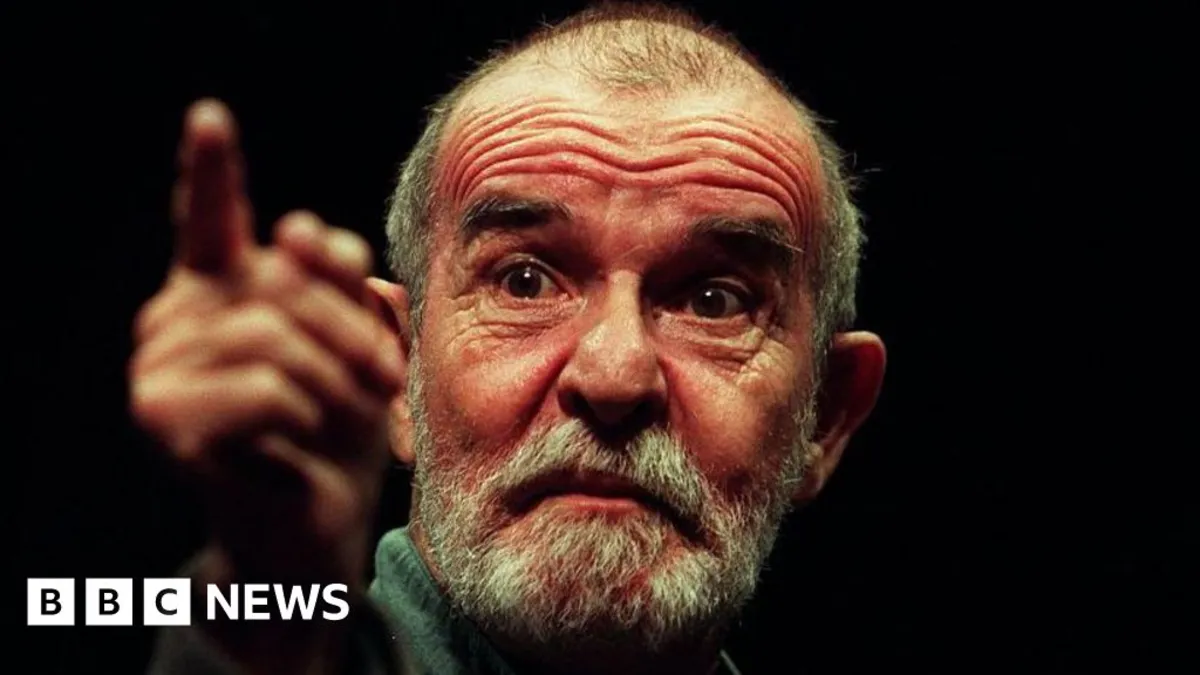
Athol Fugard, who passed away at the age of 92, was widely acclaimed as one of South Africa's most significant playwrights. Born to an Afrikaner mother, Fugard was renowned for his politically charged plays that challenged the oppressive and racist system of apartheid. His works have left an indelible mark on the world of theatre and continue to inspire generations of artists and activists alike.
In a heartfelt tribute to Fugard, South Africa's Arts and Culture Minister Gayton McKenzie praised him as a "fearless storyteller" who courageously illuminated the harsh realities of apartheid through his art. McKenzie remarked, "We were cursed with apartheid, but blessed with great artists who shone a light on its impact and helped to guide us out of it. We owe a huge debt to this late, wonderful man." These sentiments reflect the profound respect and admiration that Fugard garnered throughout his life and career.
Over a remarkable career spanning 70 years, Fugard wrote more than 30 plays, making a significant impact with his groundbreaking work, The Blood Knot, which premiered in 1961. This play was revolutionary as it featured a black and white actor—Fugard himself—performing in front of a multiracial audience, a rare occurrence before the apartheid regime imposed laws against mixed casts and audiences. The success of The Blood Knot propelled Fugard into the international spotlight, leading to performances in the United States and adaptations for British television.
Despite the apartheid regime confiscating his passport, Fugard's determination to challenge racial barriers and expose the injustices of apartheid only intensified. He collaborated with the Serpent Players, a group of black actors, performing in black townships while facing harassment from the security forces of the apartheid government.
Fugard's body of work includes celebrated plays such as Boesman and Lena, which explores the struggles of a mixed-race couple. This poignant play premiered in 1969 and was adapted into a film in 2000 featuring stars like Danny Glover and Angela Bassett. His novel Tsotsi was also transformed into a film, winning the prestigious 2006 Oscar for Best Foreign Language Film.
Commenting on Fugard's influence, Alan Winde, the premier of South Africa's Western Cape province, noted that Fugard possessed a "penetrating, sharp wit," emphasizing his unmatched understanding of the political and cultural landscape of the country. "He will be sorely missed," Winde added, highlighting the void left by his passing.
Other notable plays by Fugard include Sizwe Banzi Is Dead and The Island, which he co-wrote with actors John Kani and Winston Ntshona. These works serve as powerful condemnations of life on Robben Island, the infamous prison where anti-apartheid icon Nelson Mandela was incarcerated. In a simple tribute on X, Kani expressed his sorrow, stating, "I am deeply saddened by the passing of my dear friend Athol Fugard. May his soul rest in eternal peace."
Fugard's contributions to theatre earned him numerous awards, including a lifetime achievement honor at the prestigious Tony Awards in 2011. In 1985, Time Magazine recognized him as the "greatest active playwright in the English-speaking world." Reflecting on his life's work, Fugard once remarked, "Apartheid defined me, that is true... But I am proud of the work that came out of it, that carries my name."
Although he initially feared that the end of apartheid in 1994 would leave him with little to write about, Fugard continued to find inspiration in the evolving social landscape of South Africa. In a 2010 BBC interview, he echoed the sentiments of the late Archbishop Desmond Tutu, expressing concern over the direction of the nation. "I think the present society in South Africa needs the vigilance of writers, every bit as much as the old one did," he stated. Fugard believed that young writers and playwrights must recognize their responsibility to society, just as he and his contemporaries did during the tumultuous years of apartheid.
Athol Fugard's legacy as a playwright and social commentator will continue to resonate long after his passing, serving as a reminder of the power of art to challenge injustice and inspire change.